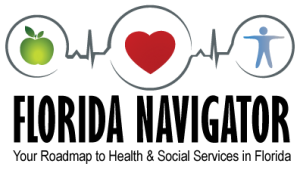Aging is Not for the Faint Hearted
The Savvy Senior
By Robert Goodman, MSW
You’ve heard the expression “aging is not for sissies”. It’s true. It takes a lot of energy to successfully age. Everyone ages differently. Our bodies go through many modifications as we age. These include changes in memory, bone health, hearing, vision, taste and smell. Our skin also can be affected by too much sun. It is important to stay out of the sun as much as possible and keep covered.
Changes in memory are a normal part of aging. As we get older, we may become more forgetful and feat that we are getting Alzheimer’s Disease or other types of dementia. However, scientists now know that people can remain both alert and able as they age, although it may take them longer to remember things. Engaging in new activities or doing crossword puzzles are ways to keep your mind alert and active.
The weight-bearing bones and the movable joints undergo much wear and tear as the body ages. The most common age-related conditions are osteoporosis and arthritis.
The question is how to cope and adjust to these changes. Here are some suggestions.
Regular physical, dental and eye exams are important to catch any problems early. Following doctor’s orders and treatment regimens are crucial to staying healthy.
It is important to stay active. Exercise is important to keep your body in good condition. Exercises can be vigorous or non-strenuous, like chair exercises. Exercise is also important to prevent falls. Falls are the leading cause of injury and death among older adults.
Volunteering your time to help others is another way of staying active. There are many volunteer opportunities in your community.
One of the hardest things to adjust to is giving up driving. People feel they are giving up their independence. No one wants to be dependent. However, many larger communities offer public transportation and special transportation services (paratransit) for people with disabilities who cannot use regular public transportation.
As we age, one of our biggest fears is becoming dependent on others. Don’t be afraid to ask for help if needed. There are many social services available to provide assistance. Family members and friends may be available to help but you need to let them know what your needs are. If you find yourself in a situation where you need assistance, make a list of the types of assistance you need, who might be available to help and ask them when and how often they can help.
Depression can result when we feel we are losing control over the changes in our lives. It is okay to ask for help. Many services are available in the community to help older adults cope with loss and grief and other changes. These agencies offer individual and group counseling. Support groups can also be of help. Sharing your thoughts with others can be cathartic. There are support groups for people who are experiencing a loss. Depression can be treated.
There are many services in the community to help us age gracefully. Call 211 or the Elder Helpline at 800-677-1116. There are some very good websites on this topic. Do a search for coping with age-related changes and you will find many resources on aging. Two excellent websites on coping with changes as we age are www.familycaregiversonline.net and www.nlm.nih.gov/medlineplus/magazine/issues/winter07/articles/winter07pg10-13.html


